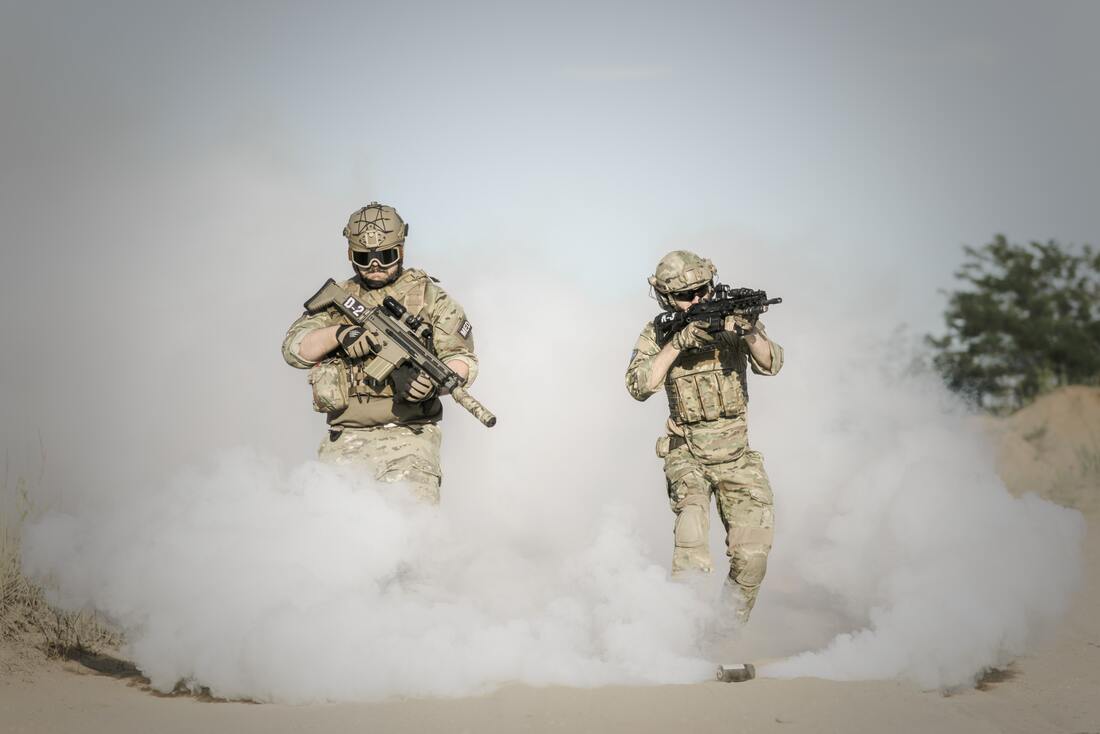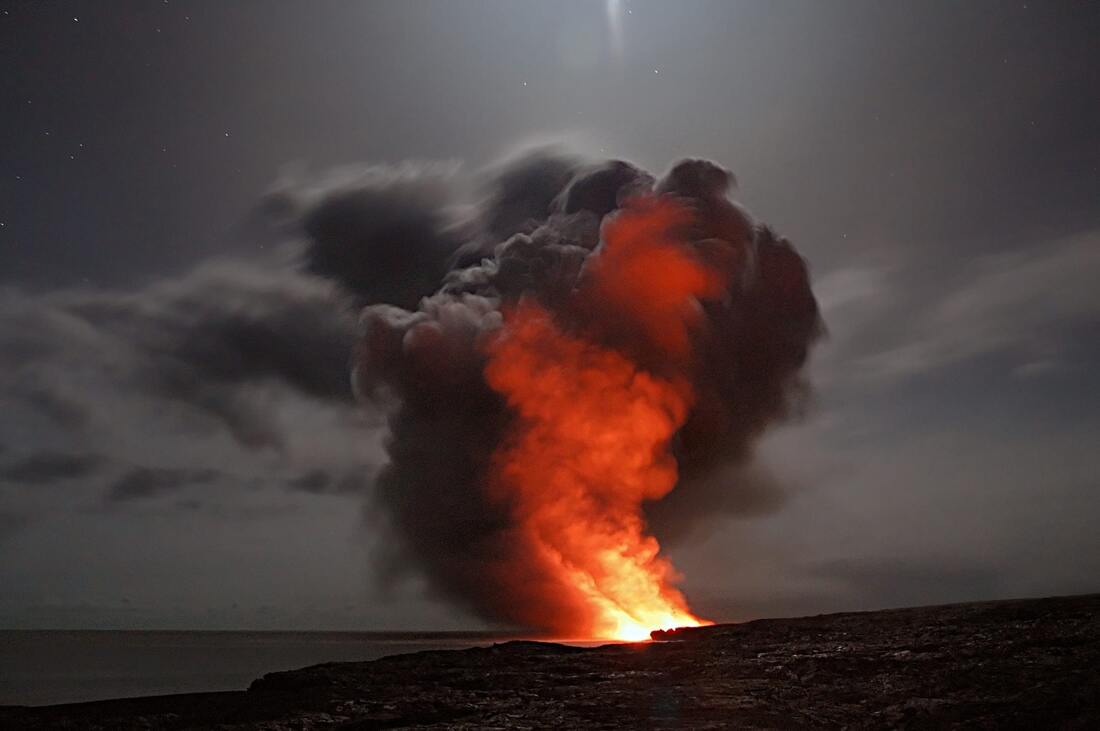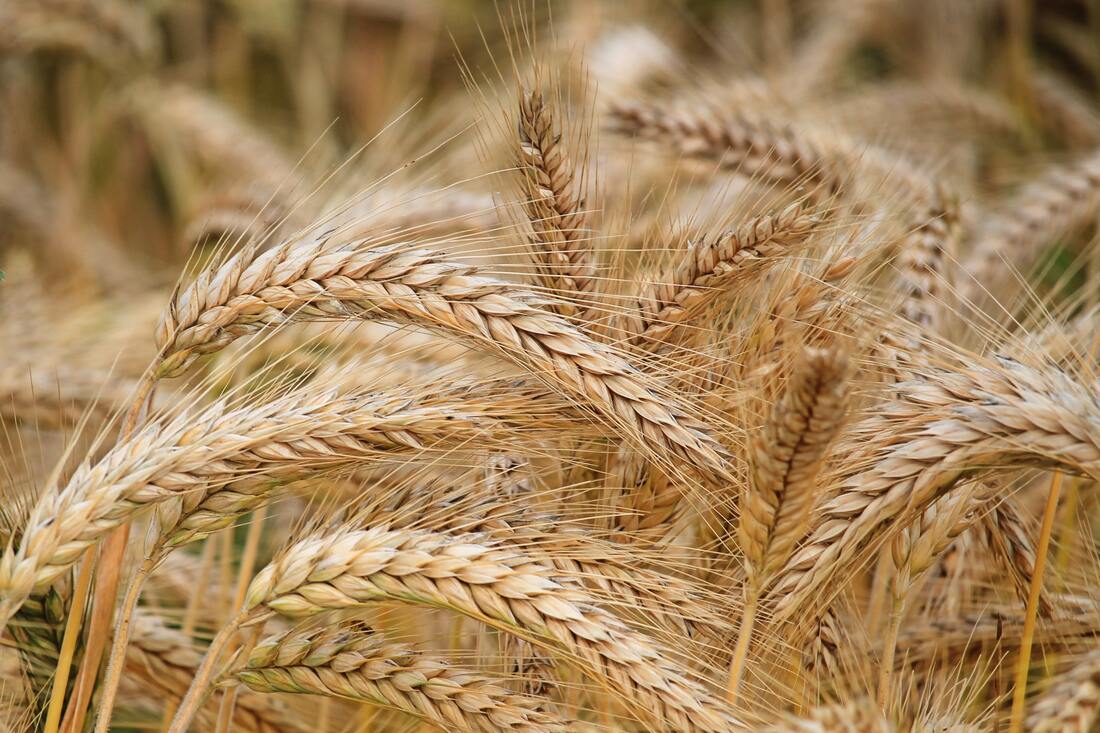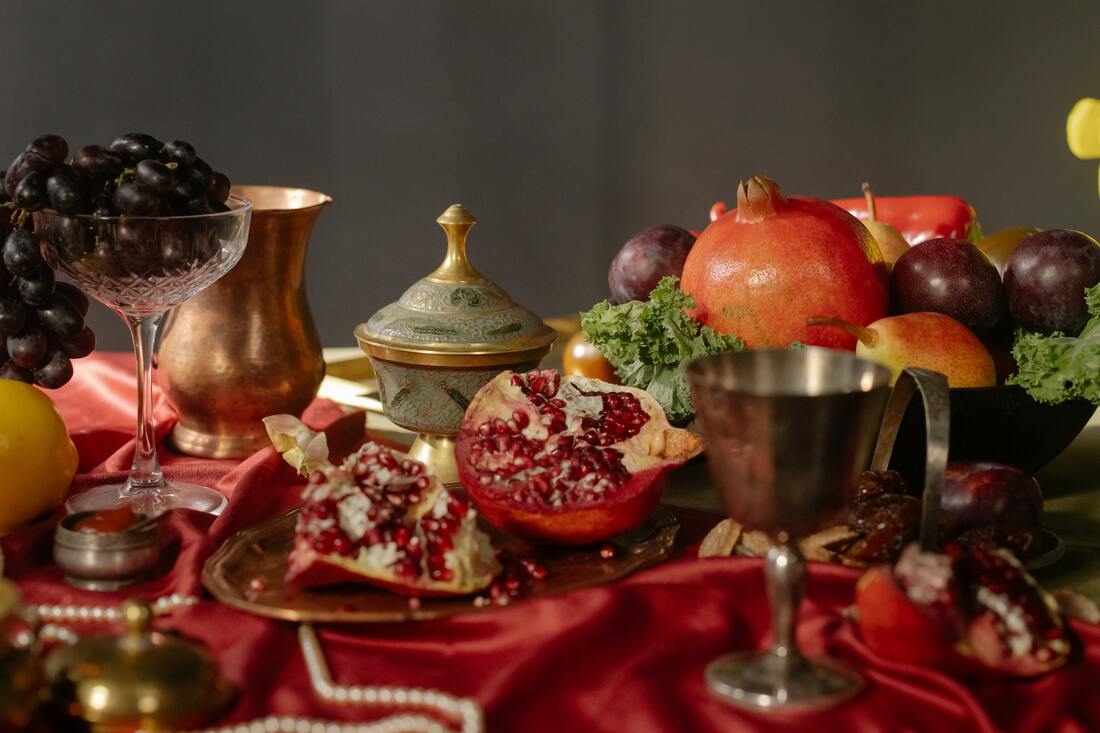|
Every year the observant Jews read what is called the Torah Portion or "parashah." (The five Books of Moses) The first five books of the Bible are divided into 54 sections to be read over the course of one Jewish year. The cycle begins the day after the completion of the fall feasts. It is called Simchat Torah or Rejoicing in the Law, and on this day, the final Torah readings take place.
The custom of reading Torah started at the time of the Babylonian captivity of the Jews. In the book of Nehemiah, we are told that Ezra the Scribe wanted to ensure that the Israelites would not go astray. This is what led to the beginning of the weekly system for all Jews to read Torah. My Jewish calendar has the Torah Portion for each week printed on the Sabbath day. The reading on the second week after the Hamas attack on Israel is Genesis 6:9 through 11:32. It encompasses the story of Noah and the flood. As one who follows the Jewish feasts and monthly festivals, I am fascinated by the way the Scripture readings correspond with them. But nothing could have surprised me more than the way last week's readings about Noah and the corruptness of those around him could have been talking about what is happening in Israel today. I listened to a recent teaching by Rabbi Jason Sobel, a messianic rabbi who appears on the TBN channel. His teaching entitled "Unlocking Hidden Connections in Scripture” was so enlightening. He points out how the Torah Portion from last week not only spoke of events from 2,500 years before Christ, but also of today. In Rabbi Sobel’s teaching, the key to unlocking our comprehension of God’s Word was through knowing the original Hebrew. The Rabbi read Genesis 6:11. "The earth was corrupt before God; the earth was filled with violence." (The Complete Jewish Study Bible) Genesis 6:13 is a more detailed explanation of what is about to happen. "God said to Noah, 'The end of all living beings has come before me, for because of them the earth is filled with violence. I will destroy them along with the earth.'" (The Complete Jewish Bible) What is intriguing about these two verses is that the Hebrew translation for the word "violence" is Hamas. Hamas has several meanings that include violence, lawlessness, and an anti-Christ spirit. We can see the timelines of God’s Word for today. The Torah reading is also meaningful to those who connect it with the eighth month on the Jewish calendar. We are in that month, called Cheshvan, right now. The number eight signifies revelation and new beginnings. The Great Flood began on Cheshvan 17 and ended the following year on Cheshvan 27. Rabbi Sobel teaches that the flood was like a ritual bath or mikvah for the world. I believe that God wants to cleanse the earth again. How this will happen is a mystery; however, we see in Genesis 6 that Hamas grieves the Lord. God's intention for His people is that they live in peace and fellowship with Him and one another. Violence/Hamas has poked the “apple of God’s eye.” The Israelis are in the forefront of a battle for their lives, but God is not unaware. Let us pray for the destruction of Hamas through God's intervention, a cleansing of all people, and a spirit of the fear of the Lord to fall upon us. Our awesome God is holy and tells us to be holy as He is holy. (1 Peter 1:15) He knows the details of every part of our lives and gives us signs, through His Word, which are meant to show us how engaged He is with our lives. Peace can only come to the world as those who live in it trust their lives to our Messiah. We can read in the book of Genesis what the Lord told Rebecca after she asked Him why her twins were struggling with each other inside her womb. "The two sons in your womb will become two nations, and the two peoples within you will become rivals. One people will become stronger than the other, and the older will serve the younger." (Genesis 25:23 - TPT) This is exactly what happened. Esau, being the first born of Jacob and Rebecca, should have gotten the majority of the family inheritance, a superior position in the family, and his father's blessing. However, he made an unwise decision! He allowed his hunger and desire for physical comfort to cloud his good sense and sold his birthright to Jacob for a pot of lentil stew.
When Esau despised his birthright, he forfeited his right for the family blessing. Later, by not acknowledging that he made a mistake and blaming Jacob for his losses, he compounded his problems. Then he made a vow: "The days of mourning for my father are near; then I will kill my brother Jacob." (Genesis 27:41) Even though Jacob and Esau reconciled years later, the vow took root and, along with bitterness and rage, it traveled in Esau's bloodline. We see a manifestation of this murderous spirit in Esau's grandson, Amalek. Before the death of Christ on the Cross, the only way to stop a vow would have been to kill the person who made it. Knowing this fact brings clarity to God's instructions to the Israelites to kill those who carry this murderous spirit. The Amalekites reared their ugly heads by attacking the Israelites as they escaped from Egypt. Afterward God instructed the children of Israel: "...You shall blot out the name of Amalek from under heaven. Do not forget!" (Deuteronomy 25:19) Because God's instructions were not completely followed by the Israelites, they dealt with the Amalekite spirit over and over again. We can read about it in the story of Gideon, Saul (who saved the life of Agag, the Amalekite king), and King David at Ziklag. In light of the events of today, we see this murderous spirit as it continues to be transmitted to the descendants of Esau. The vow that was taken by one man, and never renounced, continues to manifest and attack anyone who dares to cross them. What can Christians do to help pull down this stronghold? First, we must be aware of what comes out of our mouths. Any vow that agrees with the kingdom of darkness (made based on a negative judgment) will have negative repercussions for our lives until we renounce it. We cannot allow the seed of our bad decisions to take root. We must accept the blame for our bad behaviors and take responsibility for our decisions. This means confession and repentance before God so that He can restore us. Second, there may be the fruit of an unwise decision in our own generational lines that is showing itself in our families. Our repentance needs to take place on behalf of our bloodline by the renouncing of any vow. We should declare death to the Amalekite mindset. Quick repentance is beneficial for us and those around us. Breaking agreement with this spirit of death needs to be done for ourselves and our descendants. We should ask the Lord to fill the areas emptied with a spirit of love, peace, gentleness, and self-control. Praise God for His restoration and redemption. Sadly, we have a sea of people in this world with the Amalekite spirit. It is showing itself through terrorism, torture, destruction, and murder. Our prayers can make a difference. We can go before God on their behalf and ask Him to enlighten them and reveal the sin they carry. We can also ask for mercy for them. Prayer can change everything. Praise the Lord that He died for our sins and wants all mankind to be saved. I am without words to describe last week's despicable violence and acts of terror perpetrated by Hamas terrorists on innocent Israeli citizens. The depravity of this group whose goal is to destroy Israel is beyond comprehension. Hamas leaders and the leaders of nations that align with them are praising their savagery and gleefully exhibiting the horrors of their behaviors. We have no moral equivalence to their acts of brutality.
How do we process the emotions that rise within us? I was drawn to read the Scriptures that talk about Gaza. Let us begin with the definition of Gaza-"Stronghold." This is the oldest city of the Philistines. The Old Testament is filled with stories of how the Israelites had to battle this ungodly people group. We are all familiar with the story of David as he fought the Philistine champion named Goliath. But, why did David have to fight the Philistine? When God gave the Israelites the Promised Land, He instructed them to drive out every inhabitant of the land. Then He gave them this warning: "If you do not drive out the inhabitants of the land, those you allow to remain will become barbs in your eyes and thorns in your sides. They will give you trouble in the land where you will live, and then I will do to you what I plan to do to them." (Numbers 33:55-56) We see in Joshua 11:22 what transpired when Israel fought their battles. "No Anakites were left in Israelite territory; only in Gaza, Gath, and Ashdod did any survive." God's warning was not heeded, and the disobedience of the Israelites has come back to haunt the people of Israel. Let us also look at what has been happening in the spiritual realm. At one time, Satan was the chief praiser of God. It was his position, along with legions of angels, to worship the Lord. However, his pride got in the way and he, along with one-third of the angels, was expelled from heaven. War between Satan and God has been taking place ever since. Whatever God blesses, Satan curses. When God chose the Israelites to be His treasured possession, Satan began a rampage to destroy them. When God gave the Promised Land to His people, Satan started a campaign to eliminate the Israelites from this land. Remember that it was the tribe of Judah that received Gaza as their inheritance. This is the very tribe of Jesus, the Lion of the Tribe of Judah. Jesus already defeated Satan in His death and resurrection, but the battle to destroy the Apple of God's eye continues. A combination of the above factors has kept the Jews in a constant battle with the forces of evil. There was a time when the Philistines, who occupied Gaza, captured the ark of God. God sent plagues and tumors to those people for seven months until they returned the ark. God is aware of the evil that is trying to consume His people—Christians and Jews. The prophet Amos has somethings interesting to say about Gaza. "For three sins of Gaza, even four, I will not relent. Because she took captive whole communities and sold them to Edom, I will send fires on the walls of Gaza that will consume her fortresses." (Amos 1:6, 7) Do you think we may be seeing this prophecy being played out? Our modern-day Philistines, Hamas, have great hatred for our Prince of Peace. Their brutality extends to the Palestinians who are living under their thumb. Hamas terrorists hide behind civilians and shoot their rockets into Israel from schools, hospitals, and private homes. Unfortunately, many in the younger generation have bought into the lies that Hamas has spread around the world. Their false ideologies and anti-Israel rhetoric have seeped into our institutions of higher learning, the halls of governments, and the United Nations. We must educate our children and grandchildren on the truth of Scripture and the history of Israel. We must teach them that they will find their refuge in God alone. How do we battle? "For though we live in the world, we do not wage war as the world does. The weapons we fight with are not the weapons of the world, on the contrary, they have divine power to demolish strongholds. (Gaza) We demolish arguments and every pretension that sets itself up against the knowledge of God, and we take captive every thought and make it obedient to Christ." (2 Corinthians 10:3-5) Put on the armor of God described in Ephesians 6. Use the sword of the Spirit (The Word of God) and pray. Below you will find some prayer suggestions:
Parables are stories used to illustrate a truth or principle. Jesus spoke in parables to illustrate the Kingdom of God. Hence, the listener must carefully consider the story through spiritual eyes. In Matthew 13:11-15, Jesus explained that He spoke in parables so that the secrets of His Kingdom could be understood only by His disciples. Those with a genuine hunger for God are given the gift of discernment to be able to comprehend the deeper truths of the stories of Jesus.
Let us consider the parable of the wheat and tares. The story in Matthew 13:24-30 tells of a "farmer" who sowed good seed into his field. Later, an enemy came and sowed tares among the wheat. When the farmer's helpers asked if they should uproot the tares/weeds, he responded, "No, because while you are pulling the weeds, you may uproot the wheat with them. Let both grow together until harvest." (Verses 29-30) It is my understanding that the weeds that were sown by the enemy are called darnel, a noxious weed of ryegrass that is bitter to the taste and may make someone who eats it sick. Farmers find it difficult to distinguish between wheat and darnel until harvest time. When we consider that the wheat represents Kingdom individuals and the tares people who belong to the evil one, we may ask, "Why would God allow them to grow side by side?" God's greatest desire is for us to mature into Christlike beings. As it says in Romans 8:29, "For those God foreknew He also predestined to be conformed to the image of His Son, that He might be the firstborn among many brothers and sisters." The truth is that God uses the "tares" to perfect the character of the wheat. This is called "sharing in the sufferings of Christ." (Romans 8:17) If we are to mature into the image of Christ, we must experience what He experienced and learn to respond the way He did. Harvest time will reveal those who are Christlike. The wheat bows its head because it is full of mature grain, while the tares remain stiff. Please note that the wheat and tares grow in the same conditions such as storms, droughts, and blights, but only one produces grain. Thus, it is premature to judge or uproot the tares before harvest time. What circumstances contribute to the wheat (followers of Christ) growing in Christlike character? It is what Christ followers learn. We are taught to forgive when wounded or offended, to stop judging others, and to pray for them. The ultimate mercy prayer was prayed by Christ on the Cross. "Father, forgive them, for they do not know what they are doing." (Luke 23:34) We are to do likewise. The tares (those who do not know Jesus), however, mature into those who criticize and carry offenses against others. At harvest time, the tares will be gathered to be burned. Francis Frangipane, founding pastor of River of Life Ministries in Cedar Rapids, Iowa, has rich teachings on the parable of the wheat and tares. He concludes that "The difference between the wheat and tares is the measure of love functioning in each; the wheat is able to truly bow to its Creator." My prayer for all of us is that we will be able to do likewise. The last of the fall feasts, The Feast of Tabernacles, is the culmination of all of the biblical holy days. It is also called "The Feast of Ingathering" because it is a time of harvest. This feast is a picture of the Kingdom of God to come. But before this joyous time of celebration there is the repentance of Yom Kippur. Repentance is what leads us to joy and peace. Messiah Yeshua experienced the Cross before the resurrection. He took up this Cross for us so that we could live in His glory.
In remembering God's faithfulness to them in the wilderness, the children of Israel built temporary shelters called Sukkahs. Seven days they dwelt in their shelters to remind them that God wants us to dwell under the tabernacle of HIs peace. Though the sukkah represents the wilderness season, the branches of fruit placed on it represent the bounty of the Promised Land. This is a season of joining together heaven and earth. The wilderness is our life on earth and our journey to the Promised Land, while the Promised Land itself is the Kingdom of Heaven. The Sukkah also represents a place to tabernacle with God. Here is an interesting fact to consider: The Sukkah, or temporary dwelling, was originally made from broken branches. The Apostle Paul writes about the Jewish people being broken branches from the Olive tree. These "branches" were broken off of the Olive tree (a symbol for the Jews) because of their unbelief. And here is the benefit to the rest of world: "Because of their transgression, salvation has come to the Gentiles to make Israel envious.” (Romans 11:11) It is God's desire that all nations come to Him. Isn't it interesting that the "broken branches" are integral in the salvation of the nations? They make room for all nations to come to the Lord and then those nations draw the "broken branches" back to Him. The prophet Zechariah gives us a glimpse of the future when the Lord will gather all the nations in Jerusalem. "On that day living water will flow out from Jerusalem...The Lord will be king of the whole earth. On that day there will be one Lord, and His name the only name...Then the survivors from all nations that have attacked Jerusalem will go up year after year to worship the King, the Lord Almighty, and to celebrate the Festival of Tabernacles." (Zechariah 14:8, 9,16) God desires to tabernacle with everyone from every tribe, and tongue, and nation. Through the disciple John He paints a beautiful picture of life in the New Jerusalem that is so connected to the Feast of Tabernacles. "Look, God's tabernacle is with human beings. And from now on He will tabernacle with them as their God. Now God Himself will have His home with them--'God-with-them' will be their God. He will wipe away every tear from their eyes and eliminate death entirely. No one will mourn or weep any longer. The pain of wounds will no longer exist, for the old order has ceased." (Revelation 21:3, 4 - TPT) Friday at sunset began the celebration of the Feast of Tabernacles. It will be celebrated for seven days. Should we not join in this celebration of joy and peace in remembering that Jesus/Yeshua will reign with us for eternity and that the earth will become the tabernacle of God? |
Joan E. MathiasCategories
All
Archives
July 2024
|





 RSS Feed
RSS Feed